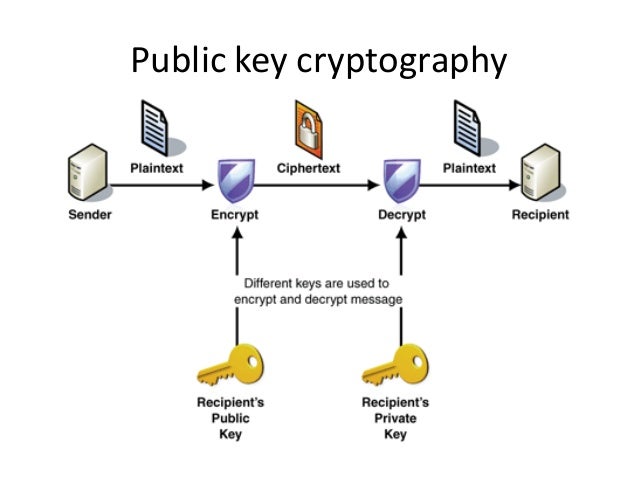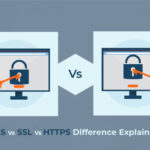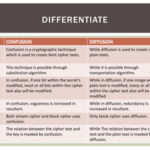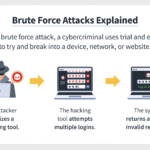Cryptanalysis, the art of deciphering encrypted messages without access to the original key, is a fascinating domain that bridges mathematics, computer science, and linguistics. As you embark on your journey into this intricate field, the question arises: Are you ready to unravel the enigmas of encryption and decode the secret lives of ciphers? Should you accept this intellectual challenge, a plethora of online resources awaits to enhance your mastery of cryptanalysis from the ground up.
The landscape of cryptanalysis has evolved significantly in the digital age, offering both budding enthusiasts and seasoned experts a variety of platforms to explore this complex discipline. Herein lies a carefully curated list of top online resources that can facilitate your pursuit of knowledge in cryptanalysis.
1. Coursera: Cryptography I
Courses such as “Cryptography I,” offered by Stanford University on Coursera, serve as an excellent foundation for novices. The course delves into the fundamental principles of cryptography, including classical ciphers and modern cryptographic systems. With a mix of theoretical frameworks and practical applications, users can engage with materials that offer quizzes and peer-reviewed assignments. This structured approach not only demystifies the principles of cryptography but also introduces learners to the basic tenets of cryptanalysis.
2. Udacity: Intro to Information Security
With the advent of cybersecurity’s critical importance, the “Intro to Information Security” course on Udacity is a valuable asset for those inclined towards the protective aspects of cryptography and cryptanalysis. Though primarily centered on securing information, this resource encompasses a detail-oriented examination of vulnerabilities, attack vectors, and defensive strategies that can inform cryptanalysis practices. The interactive format, supplemented by real-world problem statements, ensures that learners are well-equipped to navigate challenges in the field.
3. MIT OpenCourseWare: Classical Cryptography
For the academically inclined, MIT’s OpenCourseWare boasts an array of resources, including lectures and notes on Classical Cryptography. This course offers a comprehensive view of historical ciphers, providing insights into how these systems were cryptanalyzed in their time. The faculty’s rigorous curriculum aids in cultivating a robust understanding of both the theory and application of cryptanalysis, enabling aspiring cryptanalysts to grasp the evolution of encryption over centuries.
4. Cryptograms.org: Practical Cryptanalysis
If a more hands-on approach resonates with you, Cryptograms.org presents numerous puzzles that challenge your cryptanalytic skills in a pragmatic environment. This site features a gallery of encrypted messages waiting to be deciphered, thereby fostering interactive learning through practice. The gamified aspect of cryptanalysis here makes it appealing and engaging, allowing users to apply their knowledge intricately. It invites learners to immerse themselves in real cryptanalysis and enhances problem-solving capabilities through trial and error.
5. CryptoPals: Progressive Learning via Challenges
CryptoPals stands out as a unique platform designed to guide users through a series of programming challenges related to cryptography and cryptanalysis. With each task progressively increasing in complexity, you will engage with various aspects such as encryption, decryption, and attacks. The step-by-step format propels curiosity and ambition, allowing learners to delve deeply into concepts while actively working towards practical implementations. This resource’s emphasis on coding complements traditional cryptanalysis learning seamlessly.
6. Practical Cryptography by Niels Ferguson and Bruce Schneier
While not exclusively an online resource, the book “Practical Cryptography” is an invaluable addition to any cryptanalyst’s library and is available in digital formats. Written by renowned experts Niels Ferguson and Bruce Schneier, this tome offers a rich blend of practical experiences interwoven with theoretical insights. The authors elucidate complex topics with clarity, making challenging material accessible. By incorporating this resource into your studies, you can build a strong theoretical knowledge base while learning how concepts translate into real-world applications.
7. YouTube Tutorials: Engaging Visual Learning
Platforms like YouTube are replete with channels dedicated to teaching cryptography and cryptanalysis. Visual learning enables a different dimension of understanding, particularly for intricate concepts that might be challenging to grasp solely through text. Channels run by knowledgeable cryptographers often showcase tutorials on classical and current encryption methods, practical coding skills for cryptanalysis, and comprehensive breakdowns of famous cipher techniques. This mode of learning embraces a more dynamic engagement, balancing entertainment with education.
8. Community Forums: Engaging with Peers
Web forums, such as Cryptography Stack Exchange and Reddit’s r/cryptography, provide platforms for engaging with a community of like-minded individuals. These forums facilitate discussions on cryptanalysis theories, techniques, and even ongoing cryptographic puzzles. By posing questions and sharing insights, you can receive personalized guidance while contributing to the collective knowledge base. Engaging with others allows you to gain new perspectives on challenges that may seem insurmountable.
Armed with these resources, the path to mastering cryptanalysis is paved with potential. Initially perplexing, the intricate symmetries of cryptographic systems become increasingly transparent through structured learning, practice, and community interaction. Will you delve into the cryptanalyst’s playground and emerge victorious in deciphering the world’s secretive correspondences? Your adventure into cryptography and cryptanalysis awaits!









Leave a Comment